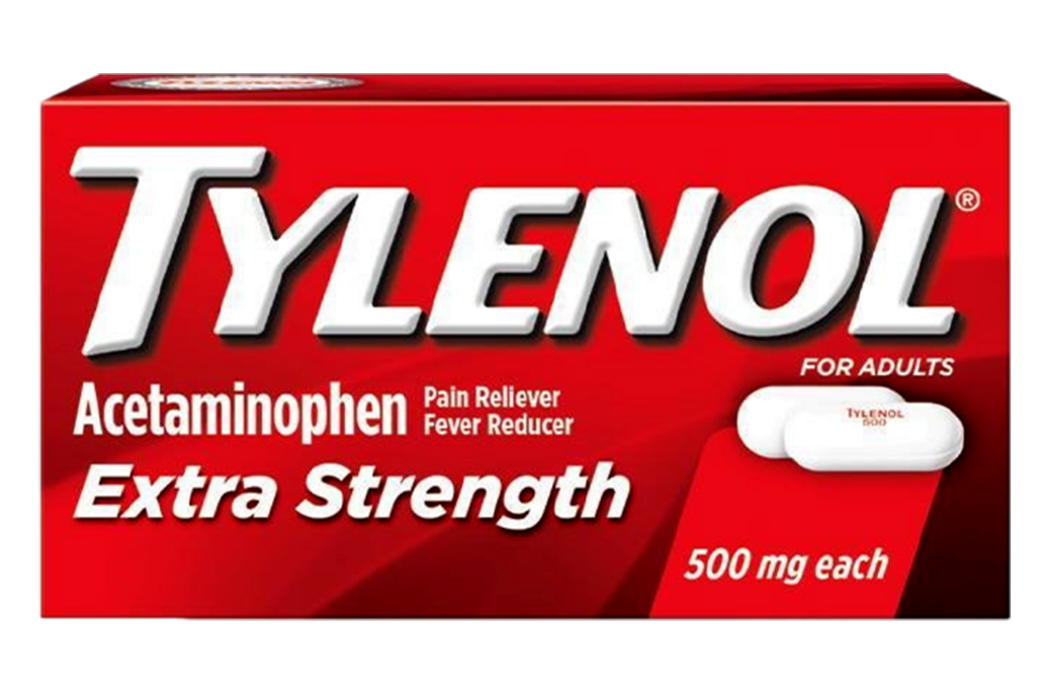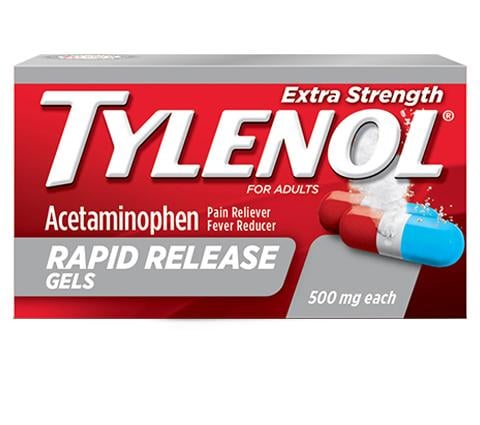
Did you know that more than 500 medicines contain acetaminophen, the active ingredient in TYLENOL® products?
Medicines like pain relievers, sleep aids, decongestants, and even prescriptions may contain the same ingredients. So it’s important to read the labels and take ONLY 1 medicine containing acetaminophen at a time. Why?
- Taking more than one increases your chances of taking too much (more than 4,000 mg in 24 hours), which could harm your liver. Four thousand milligrams in 24 hours is the maximum dose of acetaminophen.
To help ensure you’re using acetaminophen safely, download and print this dosing chart and keep it wherever you store your medicines. For more information on using “over-the-counter (OTC)” pain medicines safely, click here.
Here are some OTC and prescription medicine brands including products that may contain acetaminophen:
OTC brands:
- TYLENOL®
- NyQuil® /DayQuil®
- Excedrin®
- Mucinex®
Prescription brands:
- Vicodin®, Norco®, Lortab® (Hydrocodone)
- Percocet®, Endocet®, Roxicet (Oxycodone)
- TYLENOL® with Codeine
- Fioricet® (Butalbital)
Find Out If Your Medicines Go Together | Get Relief Responsibly®
It’s hard remember the ingredients to each and every OTC medication. And just because products go by different brand names doesn’t necessarily mean they have a different active ingredient.
It’s important to read and follow the entire Drug Facts label, but to make sure you’re taking ONLY 1 medicine with the same ingredient at a time, be sure to check the ingredients section. Know where to find this and other important information by using this guide to labels. Download this chart that lists common medicines containing the same active ingredients.
Your doctor can also help if you have questions! At your next visit, make a list of the medications and other supplements you are currently taking. These include OTC and prescription medicines, vitamins, and herbal supplements. Here are some other questions to ask your doctor to make the most out of your visit.
- Do my health conditions, age, and other medicines I am taking make a difference when choosing an OTC pain reliever?
- What are the possible side effects of the medicines I am taking?
- What should I do if my symptoms don’t go away?
For more information, visit www.getreliefresponsibly.com, which provides tools to help you choose, use, store, and dispose of over-the-counter (OTC) medicines safely.
The third-party trademarks used herein are trademarks of their respective owners.







All Fields required, unless otherwise indicated
Will be used as your user name
By submitting your information above, you agree that the information you provide will be governed by our site's Privacy Policy.